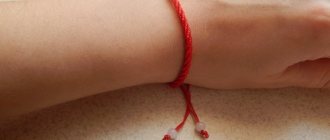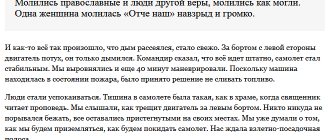- What is ablution among Muslims?
- Kinds
- Lesser ablution or wudu When should you take ablution?
- Procedure for performing ablution for prayer
- Obligatory actions during ablution
- Requirements for performing ablution for prayer
- What is prohibited to do without ghusl?
A special role in the Islamic religion is given to the ritual of ablution or taharat, and Muslims cannot perform a number of rituals of worship without ablution. It is a prerequisite for prayer, as the Prophet Muhammad ﷺ said: “ The key to paradise is prayer, and the key to prayer is ablution .” Without proper ablution, a Muslim's prayer will be invalid.
The term “taharat” means the purification of a person not only from external impurity, but also from internal, not only from physical, but also from spiritual. Taharat is divided into internal and external. Internal taharat is achieved by righteousness and repentance, and external taharat is achieved through complete or minor ablution.
The term “ablution” means ritual cleansing, which is desirable and even mandatory for believers to perform repeatedly throughout the day.
Kinds
Ablution is divided into two types:
- small or voodoo,
- complete or ghusl.
Ghusl, ghusul or complete ablution of the body must be performed after some desecration of the state of ritual purity has taken place - this happens after childbirth, after intimate intimacy has taken place, and also after women have completed their menstrual period.
Wudu or minor ablution of certain parts of the body is not only desirable, but must be done when a Muslim man or woman begins prayer.
Lesser ablution or wudu
Lesser ablution for prayer is one of the types of obligatory ritual cleansing; this procedure must be performed regularly, especially when the ritual ablution has been violated, and a Muslim man or woman does not need to be completely naked to perform it.
Ablution is taken in any convenient position, but more often sitting or standing.
When should you take ablution?
Wudu should be performed in such situations when:
- it is necessary to take ablution before prayer for a Muslim to perform prayer;
- a person intends to start reading the Holy Book of Allah, the Quran;
- a man is about to begin circumambulating the Holy Kaaba.
Wudu is necessary in cases where a Muslim did not have a ritual ablution or was violated; if a Muslim man or woman was in a state of ritual purity, then it is not necessary to take a second ablution.
Procedure for performing ablution for prayer
How to do ablution correctly? The voodoo procedure is performed in the following order:
- before ablution, the believer makes an intention in his heart to perform a small ablution;
- read the words “ Bismillah ” (translated as: “in the name of Allah”);
- washing the hands including the wrists;
- rinsing the mouth: after washing your hands, you should rinse your mouth three times, paying attention to taking the water and bringing it to your mouth with your right hand;
- rinsing the sinuses: you should rinse your nose three times, drawing water into your nose from your right palm and removing nasal discharge with your left;
- The face should be washed three times, making sure that water gets to all areas of the skin of the face, starting from the upper level of the forehead, where hair begins to grow, to the chin, and also to the beginning of the ears;
- washing the hands, starting from the fingertips to the elbows (three times), starting with the right hand. Be sure to pay attention and thoroughly wash the skin between your fingers, and you should start with your right hand. Be sure to wash your elbow. This is what scholars of all madhhabs think;
- wiping the ears and head: you should wipe your hair with damp palms so that as much of the surface of the head as possible is affected, at least a quarter. Next, the thumbs should be placed behind the earlobes, and the index fingers should be rubbed over the ears, cleaning the ear canal at the same time;
- Cleansing the feet: The end of ablution involves washing the soles of the feet up to the ankle line, and special attention should be paid to the areas of the skin between the toes. This procedure should also begin with the right leg.
Wiping the neck with the palm or the back of it, as well as brushing the teeth, is neither required nor desirable when performing ablution.
The procedure for performing ablution is described in a hadith transmitted from a man named Humran, who was a freedman of Uthman ibn Affan. From the words of Humran, it is reported that one day Uthman called on his freedman to bring him water to perform ablution, and he first washed his hands up to the wrists three times, after that he rinsed his mouth, then blew his nose with water, and then washed his face three times. Next, he first washed his right hand up to the elbow, then washed his left hand also up to the elbow. then (with wet hands) he wiped his head, then washed his right leg up to the ankle three times and did the same with his left leg. According to Uthman, he saw that the Prophet Muhammad ﷺ performed ablution in this order, after which the Prophet Muhammad ﷺ said that those Muslims who perform ablution in this order and then perform namaz in two rak'ahs will not speak mentally to themselves themselves (that is, showing humility and not being distracted by outside things), all their previous sins will be forgiven.
Obligatory actions during ablution
The obligatory actions or fard when performing small ablution include:
- intention;
- washing the face;
- washing hands up to the elbows;
- rubbing the head;
- washing the feet;
- sequence of actions in this order.
If any of the ablution points are violated, the process must be repeated again. In this case, the ablution process can be interrupted, if necessary, by performing some short and non-durable action: open the door, turn off household appliances, or do any other forced action, and then begin the ablution process from the interrupted point.
The Holy Book of Allah, the Quran, mentions all these actions, and this is the basis for the obligatory nature of such stages for Muslims: “ O you who believe! When you get up for prayer, wash your faces and your hands up to the elbows, wipe your heads and wash your feet up to your ankles ” (Surah Al-Maida (Meal), 6th verse).
Requirements for performing ablution for prayer
Both to perform wudhu and to perform ablution properly it is necessary:
- collect and use only good and clean water, which does not have any foreign odors or impurities;
- You cannot take or waste water excessively when performing ablution;
- Excessively economical use of water when washing is not allowed; there must be the required amount;
- ablution will be considered invalid if during its performance or immediately after the Muslim fainted, vomited, fell asleep, became intoxicated or laughed loudly.
Illustrations for performing taharat
PHOTO 1 - Hands are washed up to the wrist. When washing with the fingers of one hand, wipe the spaces between the fingers of the other hand. If there are rings on the fingers, they are moved so that water gets under them.
PHOTO 2 - Brushing your teeth with a miswak is a sunnah of Taharat. The miswak is taken in the right hand with the little finger and thumb, with the little finger remaining under the miswak, the index, middle and ring fingers on top, and the thumb supporting it from below. Using a moistened miswak, starting from the right, all teeth are cleaned.
PHOTO 11 - Use the little finger of the left hand to wipe the spaces between the toes of the right foot, starting with the little finger, then towards the big toe, then wash the entire foot and ankles.
PHOTO 12 - The left foot is washed like the right foot, but rubbing the spaces between the fingers with the little finger of the left hand begins with the big toe and ends at the little finger.
When does ablution spoil?
After the believer has performed a small ablution, he is in a state of ritual purity, and in this state he can perform namaz or prayer, and begin reading the Holy Book of the Koran. The state of ritual purity is maintained by the believer until he does something that violates this state.
Actions and deeds that violate the state of ritual purity after performing a small ablution include:
- if a Muslim relieves himself and/or gases come out of the intestines;
- if a Muslim has lost consciousness;
- sleeping while lying down (dozing while standing or sitting does not apply to such cases if the person is conscious);
- if a person has had large quantities of other discharges such as pus or blood from the body;
- if during this period a person touched his genitals, but touching the genitals through fabric does not apply to this situation;
- if a Muslim vomited so severely during the designated period that the entire oral cavity was filled with vomit.
What is forbidden to do without being in a state of ablution?
It is prohibited for a Muslim who is not in the state of wudu'a to:
- Performing namaz, it makes no difference whether it is obligatory (fard) namaz or desirable (sunna) namaz. Also prohibited are sujud tilawat (while reading the Koran), sujud shukr (gratitude), and Friday sermon. These rituals are considered invalid;
- Tawaf - circumambulation of the Kaaba, both obligatory and optional, is prohibited. However, the tawaf is recognized as valid even though such a tawaf is a sin.
- Touching a scroll of the Quran without ablution is prohibited, even if these are individual verses. At the same time, it is permissible to look at the verses of the Koran and read them without ablution, although it is preferable to do so with ablution. You can also touch the Quran to children for learning.
Complete ablution or ghusl
Washing the body, all its parts, which a Muslim must perform when he is in a state of ritual defilement. As the Holy Book of the Quran says, “ If you are defiled, then bathe ” (5:6).
There are situations when a small ablution is not enough, and a Muslim needs to perform ghusl or full ablution. Such situations include:
- the situation after a Muslim has entered into intimate intimacy, even if it consisted only of contact with the genitals and there was no ejaculation;
- a situation where ejaculation occurred, but it did not happen because intimacy took place, but was a consequence of the fact that the Muslim had passionate thoughts that led to arousal, or he looked at images that are forbidden, which depict naked bodies, as well as if ejaculation was the result of a wet dream;
- a situation where a woman is in the post-menstrual period, since during the period of menstruation itself, women are prohibited from fasting, praying, performing namaz, during this period she is in a state of ritual defilement, and she should perform ghusl after menstruation ends;
- a situation where a woman is in the postpartum period, since during this period she continues to have postpartum bleeding, and after its completion, the woman should perform ghusl;
- a situation where a person has just converted to Islam, and he should perform a complete ablution after saying the Shahada;
- in the event of the death of a Muslim, the body of the deceased must be completely washed.
What is prohibited to do without ghusl?
Without performing ablution, when a Muslim is in a state of ritual pollution, he is prohibited from doing certain things:
- a Muslim is forbidden to touch the Holy Book of the Koran, the text of which is entirely written in Arabic, but it is allowed to touch translations into other languages;
- perform namaz;
- visit a mosque;
- perform a ritual circumambulation around the Holy Kaaba.
Correct procedure for performing ablution ghusl
How to perform ablution ghusl? Complete ablution is performed according to the following rules and in the following sequence:
- mentally pronounce the intention to perform ablution or ghusl in the same way as should be done before performing wudu;
- read aloud the words “ Bismillahir-Rahmanir-Rahim ”;
- begin ablution by washing the hands up to the wrist area three times, and paying attention to the areas of the skin between the fingers, and this hand washing should begin with the right hand;
- continue washing, paying attention to the genitals, and they should be wiped with special care, so that all impurities are eliminated; they should be washed using not the right hand, but the left hand;
- then you should perform all the actions that are performed during a small ablution: repeat the procedure of washing the palms of your hands, but you should wipe your feet at the very end;
- Next, the head is washed: one should pour water over the head three times so that all the hair is wetted, and also so that the mustache and beard are wetted, so that there is no dry hair left from roots to ends;
- Next, you should wash the body, wash its right side, for this you should use enough water to wash the right side three times, but you should not waste water unnecessarily;
- Next, you should wash the left side of the body three times;
- The last step is to wash your feet, thoroughly washing the skin between your toes.
Mandatory and desirable actions during ablution
Performing ghusl and wudhu includes both obligatory and desirable actions. Not all Muslim madhhabs and legal schools agree on all the nuances regarding complete ablution. According to representatives of the Hanafi madhhab, when performing ghusl, fard is to rinse the mouth, wash the nasal cavity and pour over the whole body, and according to the Shafi'i madhhab, when performing ghusl, fard is the expression of intention, complete dousing and elimination of impurities.
Recommendations and tips
- Clear your thoughts before performing ablution (wudhu) so that you can concentrate on worshiping the Almighty.
- It is better to relieve yourself before ablution. This reduces the likelihood that the need will suddenly arise after performing ablution.
- Clean water is required to perform ablution. If finding water is a problem, dry ablution (tayammum) with clean dust, earth or sand is allowed.
- The stages of ablution must be performed in the specified order without long pauses between them.
- A beneficial practice is brushing your teeth, a practice that the Prophet Muhammad performed.
- If the hand is in a cast, it is allowed to wash the hand on top of the cast.
Do you know important recommendations related to ablution that were not mentioned in the article? Please write in the comments and we will add them soon.
Words after ablution
A Muslim should remember that ablution for men and women is also a means of achieving the love of Allah Almighty, since the Lord reported in the Holy Quran that He loves those who purify themselves: “ Indeed, Allah loves the repentant and loves those who purify themselves ” (Sura Al-Baqarah, verse 222 ). How to take ablution can be seen in the video lectures given at the beginning of this article.
Muslims also often ask the question of what to read during ablution: there are no specific words to read during the taharat procedure, however, texts of words that need to be read after ablution come from the sunnah, and this is a dua after ablution.
After performing ablution, you should say:
«Ashhadu alla ilaha illa Allah, wahdahu la sharika Allah. Wa ashhadu anna Muhammadan 'abduhu wa rasulyuhu. Allahumma jaalni mina ttawabiyna wa jaalni minal mutatahhiriin! »
“ I testify that there is no true deity except Allah, the Only One, Who has no partners, and I testify that Muhammad is His slave and messenger. O Allah! Make me one of those who repent (to You), and make me one of those who purify themselves! "(reliable hadith at-Tirmidhi, 55).
Below you can listen and download in mp3 format the correct pronunciation of the words dua in Arabic:
Also, the following phrase is added to this dua: “ Subhanaka Llahumma wa bihamdikya. Ashhadu alla ilaha illya Anta, astagfirukya va atubu ileikya! "
«Glorified are You, O Allah, and praise be to You! I testify that there is no deity worthy of worship except You, I ask Your forgiveness and repent before You! ».
The text of this dua after ablution can be heard below:
Recommended actions during ablution
The following actions are desirable during this religious ritual:
- Rubbing the neck after wiping the head;
The Messenger of Allah (peace be upon him) said: “On the Day of Judgment, the one who wiped his neck during ablution will be protected from shackles” (ad-Dailami).
- Addressing the Qiblah, since ablution is one of the types of worship;
- It is advisable to prepare water and take ablution yourself, without outside help, but there is nothing wrong with having someone help;
- Use your right hand to draw water to rinse your mouth and nose, and use your left hand to blow your nose and wash your feet with your left hand;
- Do not talk about worldly affairs during this ritual;
- After completion, it is advisable to say the shahada and dua after ablution.
Advantages of ablution
Muslims are required to perform ablution both before beginning religious practices and to constantly perform ablution regardless of performing religious duties, since a Muslim should be in a state of ritual purity at all times.
Islam considers ghusl and taharat to be good deeds, and both types of ritual purification are rewarded. As it is said in one of the hadiths, with a weak isnad transmitted by at-Tirmidhi, “ If someone, while in a state of ablution, performs it again, the Almighty writes ten good deeds for him .”
Another advantage of ritual cleansing is that by performing ritual cleansing, a person takes a step towards erasing his sins, and this is also confirmed by the hadith transmitted by at-Tirmidhi and Muslim: “ When a Muslim performs ablution, then by washing his face, he washes away all the sins that committing the eyes, washing the hands, washes away all the sins that he committed with them, washing the feet, washes away all the sins that he committed with them, and thus a person will become clean from sins .”
Also among the advantages of ritual ablution is the fact that a person, through ritual purification, can enter Paradise, because in one of the hadiths transmitted by Muslim, the Messenger of Allah ﷺ said: “ Whoever of you performs ablution properly, then pronounces the words of the shahada, for all eight gates of heaven will open .”
About ritual purity in hadiths
The article discussed answers to such questions as how to take ablution for women, how to take taharat for a man, what spoils taharat, and so on. If we could help, we are very happy.
The religion of Islam places great emphasis on bodily cleanliness, cleanliness of clothing and the environment.
The Messenger of Allah (peace be upon him) said: “Truly Allah the Almighty is Good and loves what is good. He is clean and loves cleanliness. He is generous and He likes generosity, He is Generous, so keep your houses clean and do not be like the Jews.”
Prophet Muhammad (peace and blessings of Allaah be upon him) said: “Indeed, on the Day of Judgment, my followers will be called “gurran muhajalina,” people with white stars on their foreheads and white shining rings on their hands and feet, because of the marks of ablution, so let him “Whoever can increase his star will do so” (al-Bukhari; Muslim).
How to perform ablution for women
The procedure for complete and minor ablution for women is carried out in the same way and in the same order as for men, and the female version does not differ from the male version.
Muslim women and girls should perform a full ablution after having sexual intercourse with their husband, as well as after the period of postpartum bleeding has ended, or the menstrual period has come to an end.
A woman whose hair is tied up in her hair may not let it down to perform ablution, but a Muslim woman must ensure that the roots of her hair, after washing and wiping her head, are wetted with water during dousing.
When performing a small ablution, girls and women should pay attention to ensuring that they are not visible to strangers, that is, such ablution should take place in a closed room specially designated for women or in a restroom.
Meaning and translation of the text
The translation of the dua after the ritual of ablution is that the person praying becomes a witness to the heartfelt worship of Allah as the true God and the only one worthy of worship. The Almighty has no equal in his strength, no allies.
Do you need the help of magical powers?
Get an answer to your burning question from a magician and healer. Write about the problem right now, and an expert will suggest a solution online!
Ask a free question View all questions
The Muslim presents himself as a witness that the Prophet Muhammad is a slave of Allah and a messenger on earth. Then words of supplication are said in order to become a repentant, purified, pious servant of Allah. In return, unconditional faith and service are given. The Almighty is presented with recognition of his impeccability and purity. The believer asks for forgiveness, asks for Allah's blessings for the Prophet, and for his followers - peace and prosperity.
The words dua mean asking the Lord for protective supervision and help. Prayer is the need for participation in a person’s fate, removal of sinful offenses, ablution from them.
By admitting that a believer is deprived of the strength to perform good or bad deeds, the human race puts itself in the role of a slave and announces its weak will.
By praising the power of the Almighty, a Muslim shows a patient attitude.








